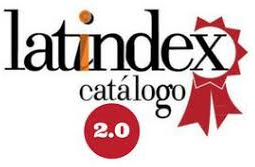| INTERNET: ¿SALIDA AL CONFLICTO ENTRE LA DEMOCRACIA REPRESENTATIVA Y LA DEMOCRACIA PARTICIPATIVA EN VENEZUELA? |
|
|
por Montilla Godoy, Alfredo Enrique
Universidad del Zulia (LUZ)
|
Montilla Godoy, Alfredo Enrique - Páez, Ángel (18-03-2010). INTERNET: ¿SALIDA AL CONFLICTO ENTRE LA DEMOCRACIA REPRESENTATIVA Y LA DEMOCRACIA PARTICIPATIVA EN VENEZUELA?.
HOLOGRAMATICA - Facultad de Ciencias Sociales UNLZ
Año VII, Número 12, V2, pp.43-83
ISSN 1668-5024
URL del Documento : https://www.cienciared.com.ar/ra/doc.php?n=1212
URL de la Revista : https://www.cienciared.com.ar/ra/revista.php?wid=3 |
 |
Documento Completo
(PDF) |
| 199382 Bytes |
|
|
|
RESUMEN: El artículo explora las posibilidades de internet como herramienta política en medio de las tensiones entre el modelo de democracia representativa y los procesos de construcción de democracia participativa en Venezuela. Las crecientes demandas que no pueden ser atendidas por el Estado van creando una crisis de legitimidad, dada la incapacidad que tiene el Gobierno para satisfacer las necesidades de la población. La democracia participativa apunta a la ampliación de lo público hacia la esfera social, democratizando la política y la gestión pública. En el caso venezolano, Acosta (2007) indica que la sociedad pasó “de tener y vivir una democracia elitesca y contemplativa” a una “democracia participativa y protagónica”, de acuerdo a la Constitución de la República Bolivariana de Venezuela de 1999, en la cual se dispone que el Gobierno nacional y las entidades políticas que lo componen “es y será siempre democrático, participativo, electivo, descentralizado, alternativo, responsable, pluralista y de mandatos revocables”. En este sentido, Castells (2001) plantea que Internet desempeña un papel importante en la transmisión de valores morales y principios, y se ha constituido como un instrumento emisor y receptor de mensajes con carga política. Muchos elementos de la democracia participativa pueden ser potenciados gracias a la ayuda de la telemática, acercando el Estado a la sociedad y rompiendo los filtros que significan “esas mediaciones” de la política, en la figura de unos partidos políticos que no satisfacen las necesidades de la población en su conjunto, donde los intereses económicos tienen más poder de influencia en las esferas públicas que la misma voluntad popular y las formas institucionalizadas de hacer política. |
|
| PALABRAS CLAVE: Internet, democracia, participación ciudadana, Venezuela |
|
|
|
ABSTRACT: The article explores the possibilities of the Internet as a political tool in the midst of tensions between the model of representative democracy and the construction processes of participatory democracy in Venezuela. The increased demands can not be met by the state are creating a crisis of legitimacy, given the inability of the Government to meet the needs of the population. Participatory democracy points to the expansion of the public towards the social sphere, democratizing politics and governance. In Venezuela, Acosta (2007) indicates that the society was "to have and live a contemplative elitist democracy" to a "participative democracy" according to the Constitution of the Bolivarian Republic of Venezuela in 1999, the which states that the national government and political entities that compose it "is and will always be democratic, participatory, elective, decentralized, alternative, responsible and pluralist, with revocable mandates. In this regard, Castells (2001) argues that the Internet plays an important role in the transmission of moral values and principles, and has emerged as a tool for sending and receiving messages with political content. Many elements of participatory democracy can be enhanced with the help of telematics, bringing the state to society and breaking the filters that mean "these mediations" of politics, in the figure of some political parties that fail to meet the needs of the population as a whole, where economic interests have more power to influence public spheres that the same will folk and institutionalized forms of politics. |
|
| KEYWORDS: Internet, democracy, citizenship, Venezuela |
|
|
Volver
|






